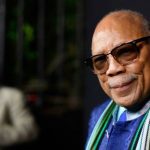These 5 Interview Questions Reveal The Most About Job Candidates
Everyone wants to look like the best version of themselves at a job interview. And while many of us would think of ourselves as honest, most of us have probably been a little dishonest when we’re interviewing for a job. For instance, no matter how true it is, no one would say, “I’m disorganized and forgetful” when a hiring manager asks about your weaknesses.
But certain questions are hard to BS our way through, and reveal a lot about who we are as a person and how we would be as workers. Here are the questions that hiring managers and recruiters consider to be the most revealing about job candidates they interview.
What Were You Doing On Your Very Best Day At Work?
Lori Goler, Facebook’s head of people, asks this question to most candidates who interview with the social media giant–whether they’re applying to be a sales intern or a UX researcher. As she explained in a previous Fast Company article, it’s a question that really reveals a candidate’s strengths and talents, which Goler can then compare against the company’s needs. When she asks candidates these questions, she also hints, “It was probably a day where you lost track of time because you were so engrossed in your work.” She wrote, “We want you to do that not just on your best day, but every day.”
Tell Me About Your Most Significant Technical Accomplishment, The Project You’re Most Proud Of
When Max Brown was a recruiter at Tesla, this was a question he regularly posed to prospective technical hires. Surprisingly, a lot of them trip up. As he wrote in a recent Fast Company article, “Most people’s first instinct is to pick the project or achievement that sounds the most substantial on paper–but that’s not always the one that illustrates their actual technical ability.”
That’s because candidates are often only responsible for one aspect of a project–and are unable to elaborate on specifics when Brown and his team pressed for them. It also gave the impression that they were “exaggerating their capabilities,” and also doesn’t leave much room for a productive technical discussion. Eventually, Brown told candidates before their interviews that this question is their one chance to showcase their expertise on something, even if it seems small.
Although this is tech-specific, Brown says the principle can apply to all interviews. Answers to this question, Brown wrote, can signal whether a prospective employee has grit, rigor and ownership. He urged interviewees, “You might think you’re boring interviewers with your story about something relatively small that you worked on, but if that’s the thing that lets you really dig into your knowledge base, go with it.”
Why Shouldn’t I Hire You?
Curveball questions aren’t always effective, but the right ones can provide telling insights. As Lydia Dishman previously reported for Fast Company, Jay Gould, an investor and founder of ad-tech firm Yashi (now part of Nexstar Media Group), used to look every interviewee in the eye and ask them, “Why shouldn’t I hire you?”
The goal isn’t to trip them up, but to assess their self-awareness, integrity, and honesty. Thinking too long on the question, for example, might indicate that they’re hiding something. And based on years of experience, Gould told Fast Company that he could tell if they were being honest or not by the way they answered the questions.
What Gould looked for were the candidates who demonstrated an ability for pattern recognition, and those that were successful tended to draw examples from their “experience, intuition, and common sense.” He also paid close attention to their body language. If someone crossed their arms, for example, that “unconsciously communicates arrogance and defensiveness.”
How Did You Prepare For This Interview?
Josh Millet, CEO and founder of pre-employment test software company Criteria Corp, likes to ask this “meta” question to get a sense of the applicant’s attention to detail. He previously wrote for Fast Company, “Asking about interview prep forces them to stay on their toes. I can almost always tell whether you’ve Googled our company last-minute or have really done your homework.”
“Doing your homework” is more than just looking at Glassdoor reviews and the company’s social media pages, Millet asserted. Rather, he’s looking for a specific insight, query, or comment they can have a conversation about. He talked about a candidate who made the following observation to him: “When I was browsing your site, I thought it was so smart to include sample score reports in the testing section. That’s the first thing I’d want to see if I was an employer considering purchasing your product.”
Millet explained, “This little anecdote tells me you took more than a cursory glance at our site.”
What Questions Do You Have For Me?
There’s a reason why almost every interview ends like this–it’s because sometimes the questions you ask the interviewer really does say a lot more about you than the questions you answered.
Ayah Bdeir, founder and CEO of technology kit company Littlebits, previously told Fast Company that this cliched question is extremely important because having specific questions about the company or the role illustrates a candidate’s curiosity and willingness to go the extra mile. Not having any questions, on the other hand, can give the impression that a candidate is lazy, disinterested, or not completely serious about applying for a job with the company. Many managers and recruiters agree that not having any questions is the worst response a candidate can have.
In a previous Fast Company article, Amazon HR recruiter Darell Jackson said that questions asked about the hiring manager’s point of view, such as, “What do you like about working here?” show that interviewees are thinking about their careers in the long term. Joe Anthony, president of financial services PR firm Gregory FCA, told Fast Company that the question, “How do your client and customer define success?” can also make a candidate stand out.
He said, “Too many questions focus on details of the job; i.e., daily routine, and less on the big picture.” This question illustrates a candidate’s ability to see how their role fits in to the big picture, as well as their drive to bring value and be successful at the company.
Fast Company , Read Full Story
(20)














